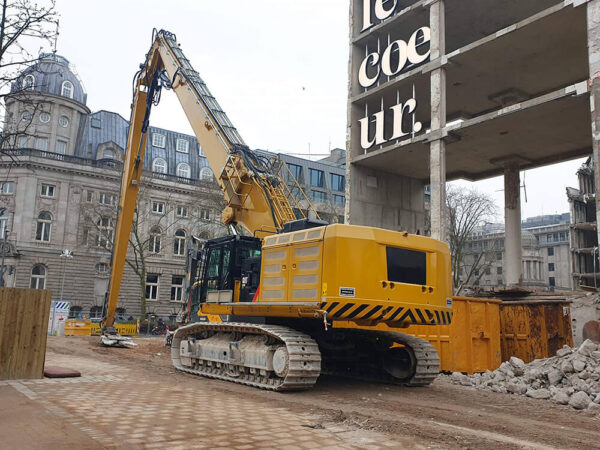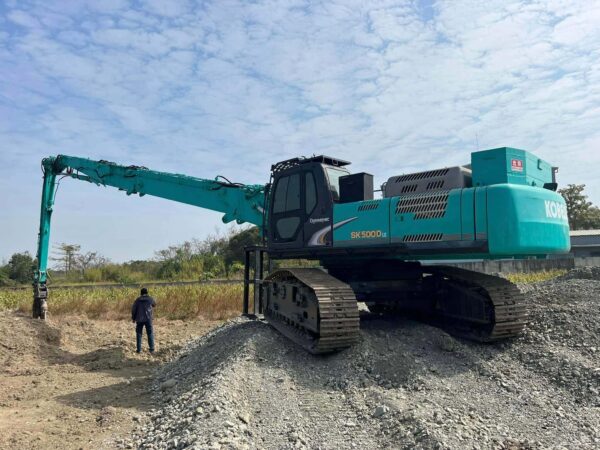Some excavators are born for construction, helping new buildings rise from the ground; some excavators are designed for destruction, demolishing old buildings and knocking them down, and the demolition boom excavator plays such a role.
Excavators for dry demolition operations have a much higher shift fee than ordinary ones, and most of them use the contract system, and the wages of the operators are often more than ten thousand yuan.
The reason why the cost is so high is because building demolition is a high-risk operation, which not only tests the courage and skills of the operator, but also tests the driver’s judgment and experience in the actual situation. If you want to gain a foothold in this field, you must have relevant experience and skills.

What equipment is used for demolition operations
As the saying goes, “Without diamonds, don’t do porcelain work.” To complete such a high-tech and difficult task as demolishing a building, one needs someone who can do it well. Common demolition equipment includes special demolition boom, breaker excavators, and dynamic compactors. Different equipment is suitable for different working conditions.
The demolition boom is a construction machine specially designed for demolition of buildings. The difference from ordinary excavators is mainly in the boom and attachments. The demolition machine has a three-section extended arm, and the working range can cover 5-10 floors; the front end is usually equipped with powerful hydraulic pliers, which can cut the reinforced concrete and tear the building into pieces bit by bit.
Excavators with breaker hammers are widely used in building demolition operations, and are the main demolition equipment for low-rise buildings. Under the heavy blow of hydraulic breaker hammers, reinforced concrete has no power to parry at all.
The hoisting hammer dynamic tamping machine is mainly used in the compaction of the soil layer. It also has a magical demolition effect on the underlying buildings. When the huge sledgehammer smashed into the building, the damage effect was shocking.
What are the postures of building demolition operations?
The most common posture for building demolition is that the demolition boom excavator stands downstairs, using the big and small arms to touch the building. For demolition machines, they are generally demolished layer by layer from top to bottom, as long as they keep a distance from the building, it is generally safer. Breaking hammers and dynamic tamping machines are generally used on the bottom and middle floors of buildings, and special attention needs to be paid to the sudden collapse of buildings.
In many demolition operations, we often see excavators being hoisted to high-altitude buildings and demolished layer by layer from top to bottom. Although this method is safer than hollowing out the ground floor, there are also great hidden dangers in high-altitude operations. The excavator will face great risks if the floor collapses if the building is not careful.
There is also a special posture. For a special building such as a high-altitude chimney, it is too dangerous for an excavator to dismantle it below, and it is impossible to get a foothold on it. Therefore, people usually use a crane to lift the excavator and let the excavator work in the air. This posture requires the use of a small excavator, and the driver must have extremely high guts and skills. Most people dare not make this kind of money at all.

Precautions for building demolition
Safety measures must be taken at the demolition construction site. The demolition boom excavator must have protective devices, on-site personnel should wear safety helmets, and safety belts should be worn when working at heights; eye-catching safety signs should be set up on the site, and safety maintenance should be done well. Non-staff members are not allowed to enter.
Before construction and demolition, it is necessary to check and clean up the surrounding environment, and eliminate safety hazards such as the surrounding pipe network, lines, water, gas, power, and underground buildings.
The demolition site must be commanded by a special person, and the risks must be fully estimated, and behaviors that exceed the safety limit must be resolutely eliminated.
